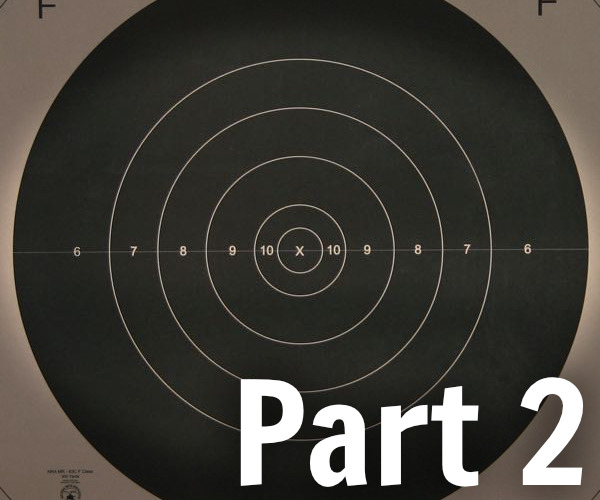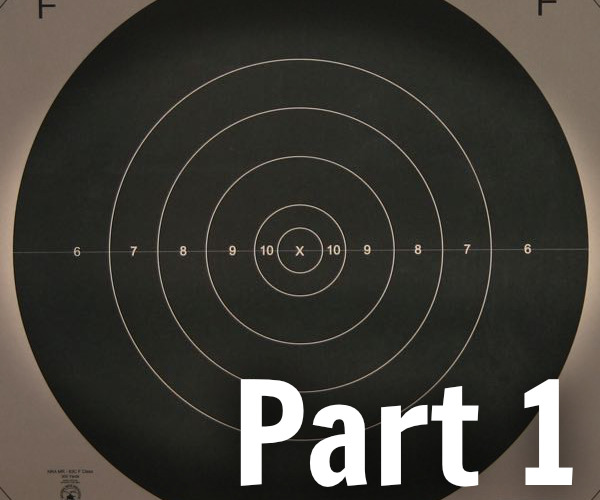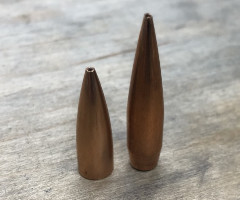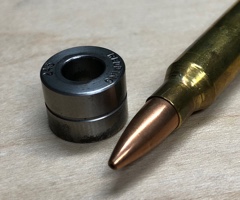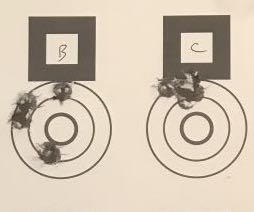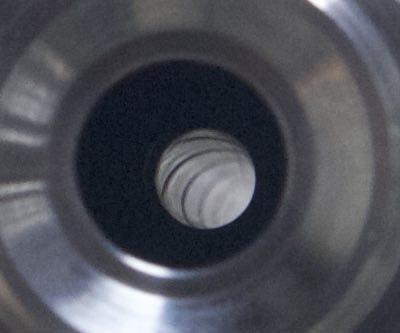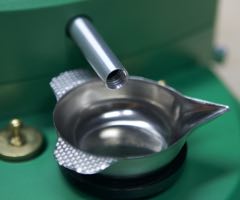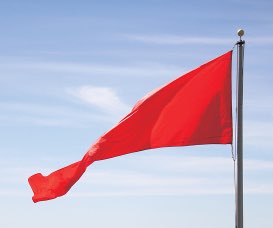The Fluted Barrel: Stiffness and Rifle Accuracy
By Damon Cali
Posted on January 07, 2011 at 10:23 PM
UPDATE: When I originally wrote this article I came to the conclusion that fluting a barrel was unlikely to have a beneficial impact on accuracy. I've since softened that position based on two pieces of information I have since received.
The first was what I found on Varmint Al's Fluted Barrel Page. He has a wonderful finite element analysis (FEA) that attempts to quantify the effects of barrel fluting on a target rifle. Now, FEA is a bit of a black art - I spent many hours fussing with complex models when I worked as an aerospace engineer, but Varmint Al's model was enough to convince me that it is plausible in theory at least, that fluting can be good for accuracy.
The second was an email I received from Scott Volquartsen of Volquartsen Custom - a man with lots of experience building rifles with and without fluted barrels. The relevant bit I've quoted here (with Scott's permission):
"...in all of our testing we have done our fluted barrels will consistently out shoot our straight stainless steel barrels. This is a very minimal difference that would only be seen when shooting from a bench with match ammo. I would say the average shooter out plinking would never notice a difference. In my opinion, I would advise the shooter on a budget to spend the additional money fluting usually cost on other features of the rifle in order to improve accuracy (stock, optics, trigger, etc). However for those where money is no object and accuracy is king I would recommend it.
Also, one other thing we have found is that fluting the barrel needs to be done a "certain way." I have seen certain set ups and talked to guys that flute their barrels and would guess it would degrade accuracy. It is a case of faster is not always better. The new equipment available to shops today is capable of fluting much faster than what is good from the barrel."
So there you have it. Two data points - one totally theoretical and one very much practical, that indicate that a fluted barrel can be beneficial to accuracy - when done properly and under the right conditions.
Now on with the article...
Shooters looking for a lighter weight rifle often resort to fluting the barrel. I've heard some tell me emphatically that fluting a barrel makes it stiffer, and therefore helps accuracy. Others say that a fluted barrel is not, in fact, stiffer and that accuracy may even be hurt.
So what's the truth of the matter? Read on.
What is Stiffness Anyway?
Lets start out by stating that there are two kinds of stiffness. Static stiffness and dynamic stiffness. Static stiffness is defined by the deformation the barrel would undergo if you locked the action rigidly in a vise and hung a weight on the muzzle. The barrel will bend downwards slightly. A stiffer barrel will bend less than a more compliant barrel. The static stiffness depends on the geometry and material of the barrel. Simple enough.
What I'll call "dynamic stiffness" is a little more complex. Just as static stiffness determines how far a barrel will bend if you push on it, dynamic stiffness determines how a barrel will move while under a dynamic load (such as firing a round). Dynamic stiffness is impacted by many things - the static stiffness of the barrel (more generally, the barrel's geometry), the mass of the barrel, the way it is attached to the rifle, the type of round fired, and many other factors. (A note to the engineers out there - I'm being intentionally vague here in the name of clarity.) So what is the effect of stiffness on accuracy? I don't know. It's not a simple question to answer. I cannot think of a rational argument for why static stiffness matters at all, except that it has an impact on dynamic stiffness. Dynamic stiffness most certainly does matter. When a rifle is fired, the barrel vibrates in a whipping motion (almost always an up-to-down dominated motion) as the bullet travels down the bore. Where, exactly, the muzzle happens to be when it the bullet leaves the barrel will impact accuracy.
That's why handloaders "tune" their load to their rifles. They are looking for a load that consistently leaves the barrel at the same point in its vibration cycle. It's also why a load that works in one rifle won't necessarily work in another.
Muzzle weights (like the Browning BOSS) approach the same problem from the other side of the coin. Rather than tuning the load to the barrel, they tune the barrel to the load. Screwing a weight in or out on the end of the barrel changes the dynamic stiffness of the barrel - remember, dynamic stiffness depends on the barrel's mass distribution.
So is stiffer better? I don't know. Stiffness is only part of the picture. The mass distribution of the rifle, the manner in which it is held, and a host of other factors also greatly impact the way a rifle vibrates. Separating out the many effects on a barrel's vibrational motion is not easy. I am of the opinion that the rifle's action and stock design are more important than minor changes in barrel stiffness, but the question remains an open one.
What Does Fluting A Barrel Do to Stiffness?
Taking a barrel and cutting flutes into it will 100%, take-it-to-the-bank, certainly make it less statically stiff than it was without the flutes. This fact is shown easily with elementary engineering principles and is not up for debate. If anyone tells you otherwise, they are wrong.
Equally true is that a barrel with flutes will be statically stiffer than another, non-fluted barrel of equal weight and length. Again, this is not up for debate. This is because material on the outer diameter contributes more to stiffness than material near the center. A fluted barrel will necessarily have a larger outer diameter than a non-fluted barrel of the same weight.
What about dynamic stiffness? Generally speaking, reducing static stiffness reduces dynamic stiffness (that is, the barrel will vibrate more slowly and with greater deflection). It also turns out that reducing mass increases dynamic stiffness. So what wins when you flute a barrel - the lower static stiffness or the decreased mass?
Unfortunately, this is a very tough question to answer definitively. A lot depends on exactly how and where you do the fluting, and what sort of vibrations you are interested in. For a fascinating analysis, check out Varmint Al's Fluted Barrel Page.
Practical Takeaway
By all accounts, fluting a barrel has little effect accuracy, either positive or negative. If done properly by a skilled gunsmith, fluting may lighten your rifle a bit, and it may have a subtle impact on the rifle's accuracy, possibly a positive one. Done poorly, fluting can wreak havoc on the sensitive tolerances of a modern match-grade barrel.
Damon Cali is the creator of the Bison Ballistics website and a high power rifle shooter currently living in Nebraska.
The Bison Ballistics Email List
Sign up for occasional email updates.
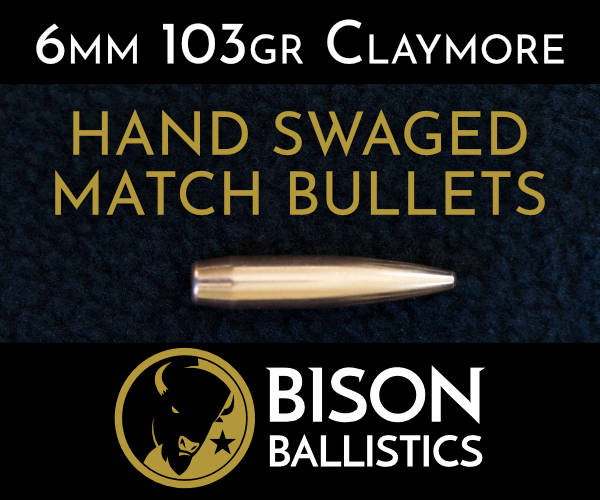

Want to Support the Site?
If you enjoy the articles, downloads, and calculators on the Bison Ballistics website, you can help support it by using the links below when you shop for shooting gear. If you click one of these links before you buy, we get a small commission while you pay nothing extra. It's a simple way to show your support at no cost to you.
